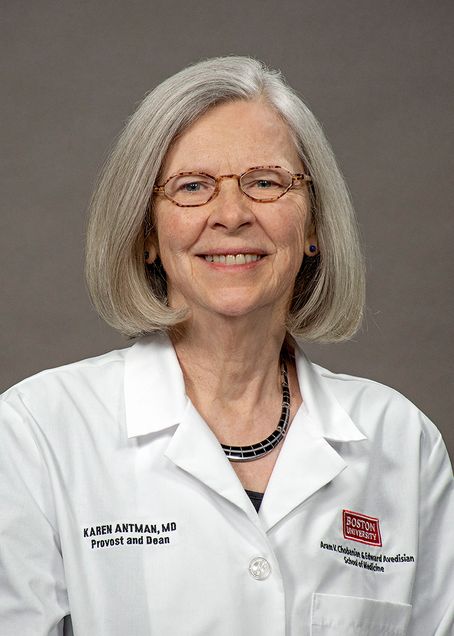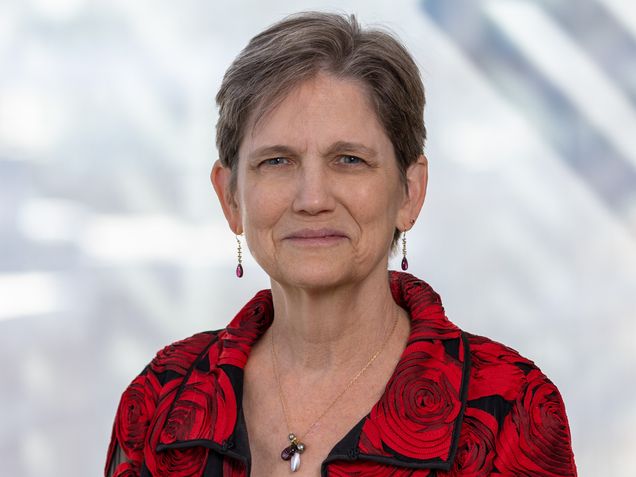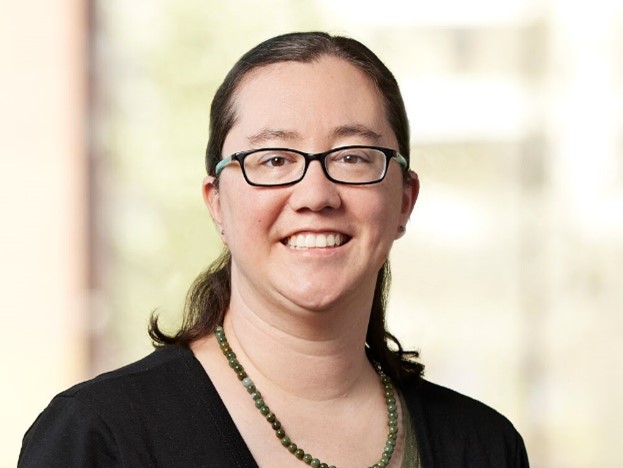Women’s Health: Research Between Bench and Bedside
Tuesday, Feb. 25, 2025 webinar–Women’s Health: Research Between Bench and Bedside
View Webinar Recording
Event Recap
Questions about the webinar, please contact cameddev@bu.edu.
Welcome Remarks:
 Karen H. Antman, MD, BUMC Provost; Dean, Chobanian & Avedisian School of Medicine
Karen H. Antman, MD, BUMC Provost; Dean, Chobanian & Avedisian School of Medicine
Dr. Karen Antman, an internationally recognized expert on breast cancer, mesotheliomas and sarcomas, previously served as Deputy Director for Translational and Clinical Sciences at the National Cancer Institute of the National Institutes of Health (NIH) and before that as Wu Professor of Medicine and Pharmacology and Director of the Herbert Irving Comprehensive Cancer Center at Columbia University College of Physicians and Surgeons, where she co-directed the cancer care service line at New York Presbyterian Hospital. She served on the faculty of Harvard Medical School from 1979 to 1993, and had hospital appointments at Brigham and Women’s Hospital and Dana-Farber Cancer Institute in Boston.
She is a member of the Institute of Medicine and serves on the Administration Board of the American Association of Medical Colleges Council of Deans, and on the board of the Educational Commission for Foreign Medical Graduates. She served on the Council of the Fogarty International Center of the NIH and as President of the American Society of Clinical Oncology, the American Society of Blood and Marrow Transplant, and the American Association for Cancer Research. She has more than 300 publications, edited five textbooks and monographs and has published reviews and editorials on medical education, medical policy and the impact of research funding and managed care on clinical research.
Moderator:
 Emelia J. Benjamin, MD, ScM, Associate Provost for Faculty Development, BUMC; Jay and Louise Coffman Professor, Chobanian & Avedisian School of Medicine; Professor of Epidemiology, Boston University School of Public Health
Emelia J. Benjamin, MD, ScM, Associate Provost for Faculty Development, BUMC; Jay and Louise Coffman Professor, Chobanian & Avedisian School of Medicine; Professor of Epidemiology, Boston University School of Public Health
Dr. Benjamin is a Boston University (BU) Chobanian & Avedisian School of Medicine and Robert Dawson Evans Distinguished Professor of Medicine, and School of Public Health Professor of Epidemiology. She is a Framingham Study investigator and a Boston Medical Center (urban safety net hospital) cardiologist. She is an international leader in the epidemiology atrial fibrillation (AF) and has been continuously NIH funded since 1998 on grants related to AF, vascular function, inflammation, mobile health, and chronic pain. She has an H-index >200 and >800 publications. Dr. Benjamin has Co-Chaired an NHLBI Working Group advising on the AF research agenda.
Dr. Benjamin is the inaugural Associate Provost for Faculty Development, BU Medical Campus. She has a fundamental commitment to mentoring women and individuals who are underrepresented in health sciences and medicine. A member of the Association of American Physicians, she has won national awards for research, education, mentoring, and diversity, including the 2022 American Heart Association’s Distinguished Scientist Award, and the 2020 Alliance for Academic Internal Medicine Diversity and Inclusion Award.
Panelists:
 Kimberly A. Bertrand, ScD, Associate Professor of Medicine, Boston University Chobanian & Avedisian School of Medicine
Kimberly A. Bertrand, ScD, Associate Professor of Medicine, Boston University Chobanian & Avedisian School of Medicine
Dr. Kimberly Bertrand, ScD is Associate Professor of Medicine and an epidemiologist at the Slone Epidemiology Center at Boston University. She is an established, NIH-funded cancer epidemiologist focusing primarily on cancer risk and outcomes in Black women, who suffer a disproportionate burden of cancer in the U.S. She is currently Multiple Principal Investigator of the Black Women’s Health Study, a prospective cohort of 59,000 self-identified Black women begun in 1995. Much of her current research efforts focus on identifying risk factors for breast and other cancers in Black women, especially those that may contribute to racial disparities in cancer. In addition, Dr. Bertrand is a key collaborator on the National Cancer Institute’s DES Follow-up Study, a multi-generational study of the effects of prenatal exposure to diethylstilbesterol, a synthetic estrogen given to millions of pregnant women between the 1940s and 1970s.
 Catherine M. Klapperich, PhD, Professor of Biomedical Engineering, Boston University College of Engineering; Scientific Director of the DAMP Lab; Associate Director of the BU Precision Diagnostics Center
Catherine M. Klapperich, PhD, Professor of Biomedical Engineering, Boston University College of Engineering; Scientific Director of the DAMP Lab; Associate Director of the BU Precision Diagnostics Center
Dr. Catherine Klapperich is Professor of Biomedical Engineering at Boston University. Dr. Klapperich joined BU as an Assistant Professor in 2003 and has built an internationally recognized research program in point of care diagnostics for infectious disease. She invents new technologies that can expand the reach of molecular diagnostics into resource limited settings in the United States and around the World. She has made contributions that enable integrated sample preparation in microfluidic and paper fluidic devices. Her work includes screening for human papilloma virus (HPV), testing for chlamydia and gonorrhea, malaria, and HIV viral load monitoring.
In 2020, Dr. Klapperich was chosen by the president of Boston University to lead the design and scale up of campus wide COVID-19 testing in a new facility on the Charles River Campus. Dr. Klapperich’s leadership brought together expertise in assay development, liquid handling, software design and development, data analytics and security, regulatory issues, and clinical test provision. Between July 2020 to May 2022, the lab performed about 2.5 million COVID-19 PCR tests.
Her recent research interests combine these diagnostic platforms with comprehensive approaches to public and environmental health to monitor endocrine disrupting chemicals in the environment and in the body. Her approach includes high throughput culture and screening of organoids built using primary cells to model the female reproductive system.
Dr. Klapperich holds a BS in Materials Science and Engineering from Northwestern University, an SM in Engineering Sciences from Harvard, and Ph.D. in Mechanical Engineering from the University of California, Berkeley. She has received funding from the NIH, NSF, DOD, The Wallace H. Coulter Foundation, The Bill and Melinda Gates Foundation, Grand Challenges Africa, and others. Dr. Klapperich is a fellow of the AAAS, AIMBE, BMES, and the International Academy of Medical and Biological Engineering (IAMBE).
 Elisha M. Wachman, MD, Professor of Pediatrics, Chobanian & Avedisian School of Medicine; Vice Chair for Research, Department of Pediatrics; Co-Director, BU CTSI Workforce Development
Elisha M. Wachman, MD, Professor of Pediatrics, Chobanian & Avedisian School of Medicine; Vice Chair for Research, Department of Pediatrics; Co-Director, BU CTSI Workforce Development
Dr. Elisha Wachman is a Professor of Pediatrics at the Boston University Chobanian & Avedisian School of Medicine, an attending neonatologist, and Vice Chair for Research in the Department of Pediatrics at Boston Medical Center (BMC). Dr. Wachman also serves as the Co-Director of Workforce Development for the BU Clinical and Translational Science Institute and Co-Lead of the Massachusetts Perinatal Neonatal Quality Improvement Network Perinatal Opioid Project (PNQIN POP). She is an internationally recognized leader in Neonatal Opioid Withdrawal Syndrome (NOWS) and substance use disorders in pregnancy, conducting innovative clinical and translational research and leading quality improvement interventions in this area. Her research is funded by the NIH, CDC, Massachusetts Department of Public Health, Gerber Foundation, and March of Dimes Foundation and has included the investigation of optimal pharmacologic treatment regimens for infants with NOWS; novel approaches to the pharmacologic treatment of pregnant persons with opioid use disorder; clinical, genetic, and epigenetic markers of NOWS outcomes; and the examination of long-term childhood outcomes after prenatal opioid exposure. She provides consultation to numerous statewide perinatal quality improvement collaboratives looking to improve outcomes for substance-exposed newborns.
Dr. Wachman, Dr. Joyce Wong, Dr. Benjamin are co-leaders of the new Boston University (BU) Women’s Health Pre-Affinity Research Collaborative (Pre-ARC), an interdisciplinary network of over 75 faculty from across the BU campus conducting women’s health research across the translational science spectrum. She is also an active research mentor for BU junior faculty, PhD students, and trainees across multiple BU/BMC training programs.
 Lauren A. Wise, MSc, ScD, Professor, Department of Epidemiology, Boston University School of Public Health
Lauren A. Wise, MSc, ScD, Professor, Department of Epidemiology, Boston University School of Public Health
Dr. Wise is Professor of Epidemiology at Boston University School of Public Health (BUSPH), where she teaches graduate-level courses on reproductive epidemiology and cohort study design. Her primary research interests involve the study of environmental, behavioral, and social determinants of gynecologic and reproductive outcomes, including uterine fibroids, subfertility, miscarriage, and adverse birth outcomes. She is Principal Investigator of Pregnancy Study Online (PRESTO), a NIH-funded web-based preconception cohort study of the reproductive health of >22,000 North American couples (http://presto.bu.edu). She has also published extensively on racial disparities in uterine fibroids, using data from the Black Women’s Health Study (BWHS) and the Study of Environment, Lifestyle, and Fibroids (SELF), a Detroit-area prospective cohort study of 1,693 Black women. She has published more than 375 research articles in peer-reviewed medical journals. She served as President of the Society for Pediatric and Perinatal Epidemiologic Research (SPER) in 2020, Chair of the American Society for Reproductive Medicine’s Fibroids Special Interest Group (FSIG) in 2015, and Chair of the American Society for Reproductive Medicine’s Environment and Reproduction Special Interest Group (ERSIG) in 2021. She currently serves on the editorial boards of Human Reproduction, American Journal of Epidemiology, and Pediatric and Perinatal Epidemiology. She was recipient of the 2022 Excellence in Education Award from the Society for Epidemiologic Research (SER), the 2020 Faculty Award for Excellence in Research and Scholarship from Boston University School of Public Health, and the 2020 Saward-Berg Honorary Lectureship from the University of Rochester.